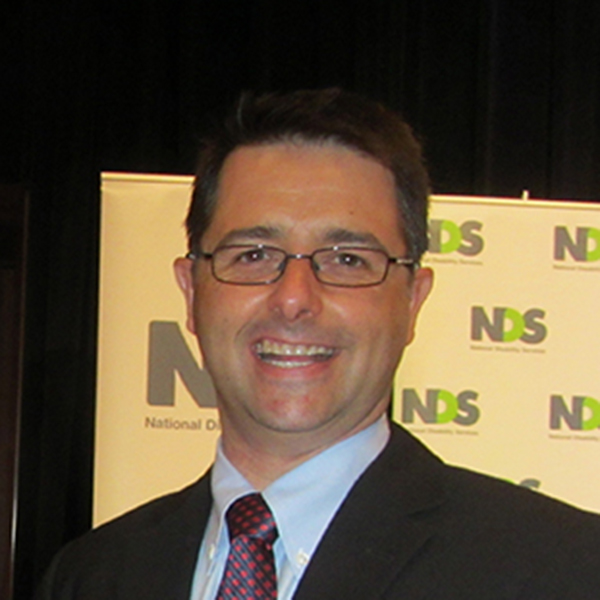Alastair McEwin spoke about the past, the present and future at the NDS NSW 2017 Conference. Here are highlights from his keynote address.
As the 25th anniversary of the Disabilities Discrimination Act approaches, Disability Discrimination Commissioner Alastair McEwin said the challenge is to ensure the National Disability Strategy and the NDIS reach their full potential. “For the first time both government and the community are working together to recognise the value of investing in the rights of people with disability”, he said.
“We are starting to see how great life for people with disability can be, when they have access and support that is reasonable and necessary. What is it that they need to live an ordinary life? These people throughout their entire life have been told they are special. They need to go to a special school, get a special job, a special home and special activities. That becomes the norm for their life but they can be ordinary with the help of the NDIS. I’ve been told a lot of things by people who have described the NDIS in many ways and many are unsure of what the NDIS really means, and how it can impact on their lives. There is more we need to do in raising awareness to ensure that the community has full understanding of the NDIS.
“Recently the NDIS was described to me as like going to a French restaurant when you don’t speak French, you’ve got a menu of items that you don’t quite understand and some you do. You can have a discussion with the waiter, but he’s time sensitive and you just randomly pick an item because it looks familiar, and hope for the best. While I did like that analogy, on a more positive note, I like to use the analogy of the NDIS as very much like sailing. You are unable to control the winds, but you can control the direction of your sails so you ensure you reach your destination successfully.
“Whatever terms or analogies you use to describe the NDIS, the reality is that it is here. I also want to acknowledge that it’s not the persons’ disability that outlines the barriers, the barriers occur within society. Often it’s discrimination, lack of awareness, or the fact there is not enough support and services. The core of the NDIS is about providing people with disability access to equitable standards. With that in mind we need to ensure that we see the sustainability of the NDIS as a shared responsibility by the community, government, participants, their families and carers.”
McEwin said the NDIS is just one part of the overall vision and if an individual can utilise their package of supports creatively and access things they need that was great, however there were still a number of barriers occurring within the wider community and breaking down these barriers starts with education and awareness.
During his term as commissioner McEwin is proposing to focus on six priority areas, employment, education, housing, the criminal justice system, the NDIS and violence against people with disability, especially towards women and children. “People are very strongly in support of the NDIS, yet in conversations I have noticed a lot of apprehension about the NDIS being able to achieve everything it’s set out to do. I am aware there have been many issues along the way, but I still live in hope that the NDIS will, and can achieve what it has set out to achieve, especially in relation to ongoing education to the community which I see as a vital role of the NDIS. We need to be patient, but I feel that we will get there,” he said.

